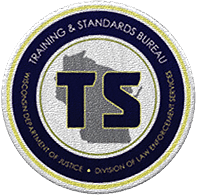
Tactical Functional Training and the 8 Dimensions of Wellness
Tactical Functional Training (TFT) is a program designed to improve officers’ fitness and wellbeing while reducing job-related injuries. Idiosyncrasies of the law enforcement job make certain areas of an officer's body particularly susceptible to injury. TFT's fitness protocol is unique and addresses several wellness dimensions. It focuses on increasing officers' physical mobility, especially these vulnerable areas, as the first step toward overall fitness and conditioning. TFT also addresses nutritional, emotional, and motivational aspects of wellness, as conveyed by veteran police officers and their perspectives on wellness. Increased wellness results in a reduction of job-related injuries and an increase in physical, emotional, and occupational wellbeing. TFT aims to help law enforcement officers become their best physical selves and be more productive in their professional and personal lives.
The Problem
According to the Law Enforcement Officers Memorial Fund, today, there are more than 900,000 full-time law enforcement officers with their average age at about 40 years old. A recent NPR news story highlighted that since 2013, the number of police officers has fallen by about 23,000 officers nationally. The Survey of Occupational Injuries and Illnesses (SOII) shows that, on average, officers suffer more than 31,000 non-fatal lost time injuries every year. Between the lower recruitment rates for officers, increasing injury rates on the job, and an aging workforce, the need to ensure active-duty police officers' health and wellbeing has never been higher. Injuries plague officers due to the high stress and physical demands of their profession. Law enforcement agencies are looking to wellness strategies like the one defined by the 8 dimensions of wellness to help officers cope with these chronic stressors.
Dimensions of Wellness
A person’s happiness is not necessarily rooted in one facet of that person’s life. It is the integration of several dimensions that impact their health and wellbeing. Dr. Bill Hettler, 1976, is the originator of the dimensions of wellness and modeled wellness as six dimensions.
The University Health Service at the University of Michigan updated the model to eight dimensions by adding environmental and financial. It is in use today to help optimize wellness for UM student’s success.
Overview of the 8 dimensions of Wellness
- Occupational wellness – Ability to contribute unique skills to personally meaningful and rewarding paid or unpaid work
- Social wellness – Ability to form and maintain positive personal and community relationships
- Intellectual wellness – Commitment to lifelong learning through the continual acquisition of skills and knowledge
- Physical wellness – Commitment to self-care through regular participation in physical activity, healthy eating, and appropriate health care utilization
- Emotional wellness – Ability to acknowledge personal responsibility for life decisions and their outcomes with emotional stability and positivity
- Spiritual wellness – Finding purpose, value, and meaning in your life with or without organized religion. Participating in activities that are consistent with your beliefs and values
- Environmental wellness – Refers to one’s relationship to their surroundings that affect humans’ wellness
- Financial wellness – Is your relationship with money and skills in managing resources
Source: Adapted from “The Six Dimensions of Wellness Model,” by W. Hettler (1976). Copyright 2004 by the National Wellness Institute.
A person might achieve physical vitality, mental quickness, and personal fulfillment through the daily choices they make and their activities as they relate to these eight dimensions.
An assessment of studies researching the dimensions of wellness found promoting wellness in one or more dimensions may be an effective strategy for preventing cognitive decline in older adults (Strout, KA. & Howard EP., 2012). The idea that various facets of a person's life may influence their overall wellness makes intuitive sense. Implement TFT into your agency and reap the benefits of wellness.
Reference
Strout KA, Howard EP. The six dimensions of wellness and cognition in aging adults. J Holist Nurs. 2012;30(3):195-204. doi:10.1177/0898010112440883
Police Academy Requirements by State:




